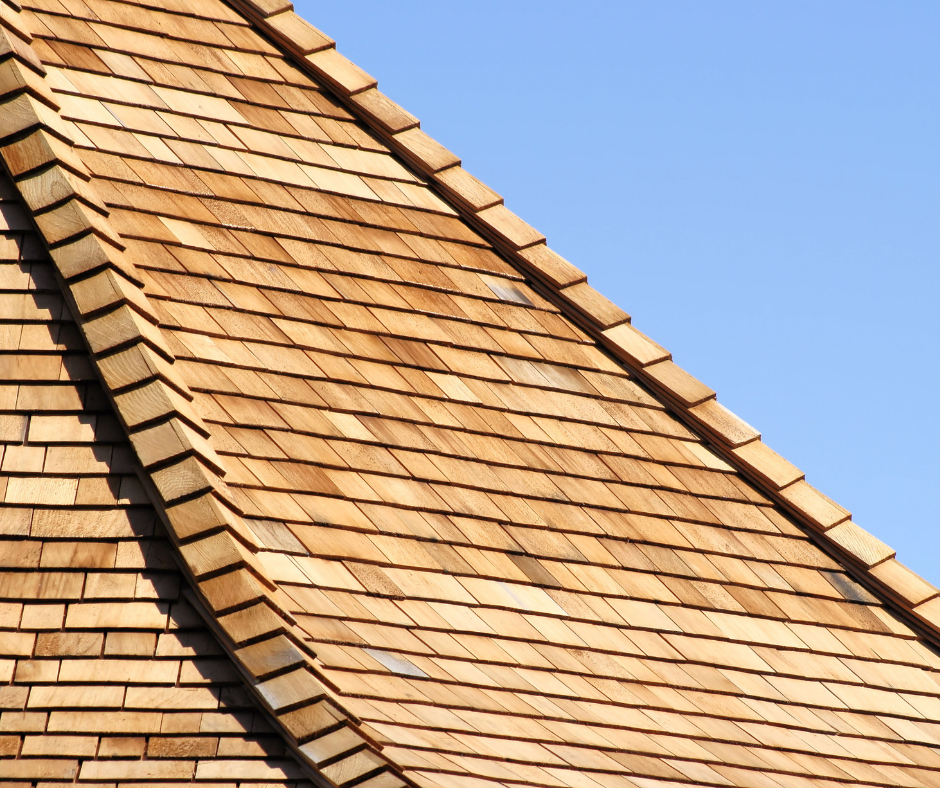
Which is Better: Cedar Shakes or Asphalt Shingles?
Roofs and walls make up the bulk of your home’s exterior. One of the most significant factors to consider when deciding on a roofing option is the material of your roof. Asphalt shingles and cedar shakes are two prevalent roofing materials. Although normally more expensive, cedar shakes offer a lovely, natural appearance. While asphalt shingles are more prevalent and reasonably priced, which is best for your home? This post will assist you in determining which material is superior!
The Difference Between Asphalt Shingles and Cedar Shakes
Asphalt shingles are made of asphalt, and cedar shakes are made of cedar. Both serve the same purpose—to act as a building’s roof—and share the same fundamental structure. The kind of wood used to produce the shingles is the main distinction. While cedar shakes are wood, asphalt shingles are made of metal, fiberglass, and acrylic. Because the shingles have diverse widths and thicknesses and age in a way that enhances their beauty, cedar shakes give a roof a rustic and natural look. Asphalt shingles cover the roof like a blanket, giving it a smoother, more contemporary appearance that some people find more enticing.
· Asphalt Shingles
Typically, this roofing material is used on the roofs of residential and commercial structures. Because they are relatively affordable, simple to install, and environmentally friendly, asphalt shingles are frequently chosen over other roofing materials. To make the shingle, A fiberglass mat covered in an asphalt-based filler substance that is steamed to 400 degrees and spread over the mat to create the base is the foundation for asphalt or composite shingles. To give the shingle its distinct color and offer a weather-resistant surface, the rock is crushed to a certain size and then covered with a ceramic substance. Once everything has been embedded together, a thin coating of sand is added, and the mat is then cut to size and given to stores for sale.
· Cedar Shakes
Cedarwood, a naturally occurring resource that is quite expensive, sustainable, and renewable, is used to make cedar shakes. Because they are recyclable, they also have little environmental effect. Due to their lower energy requirements during production and maintenance compared to other roofing materials, they are also energy-efficient.
Cedar shakes are cut from logs and sold in this same unfinished state. The widths of the roofs used for roofs vary based on the tree they are harvested from and feature a strong butted edge at least an inch wide. Many people enjoy the rough, all-natural appearance of a bulky cedar shake, even though certain shakes have been re-sawn to create a smooth or uniform back edge that helps the shake to lay level on the roof.
Pros and Cons of Cedar Shakes vs. Asphalt Shingles
Asphalt Shingles
Benefits
- Their life expectancy is fair.
- They use less energy.
- Asphalt shingles have a vast selection of colors and designs.
- Some are rated for severe winds.
- They have affordable prices.
- Asphalt shingles are adaptable.
- They offer a DIY option.
- Many have a rating for the effect of snow and other items.
Disadvantages
- After 20 years, many asphalt shingles require replacement, unlike cedar shakes.
- Less resilient than other kinds of roofing materials.
- They are appealing, but they need a timeless and refined appearance.
- They might split, allowing leakage.
- Significant granule loss may occur in regions with frequent, strong rain and winds.
- If kept in bad condition, mildew might become a problem.
- For a good seal, installation is best done when the weather is warmer.
Cedar Shakes
Benefits
- If properly maintained, THEY can easily survive over 27 years.
- They improve curb appeal and can raise the value of your house.
- Cedar shakes are resistant to wind and impacts.
- They may reduce the cost of heating and cooling.
- They improve the roof’s airflow, which prevents moisture buildup.
- Cedar Shakes have a high level of pest resistance.
- They naturally insulate, which is nearly twice as valuable as asphalt.
Drawbacks
- Moisture issues can arise.
- You cannot install it yourself.
- Unless treated, they are more prone to fire.
- The cost is greater than for asphalt shingles.
- A cedar roof should be cleaned of mold and other fungi every two to four years because they can trap moisture and harm the shakes.
Cost of an asphalt shingle versus a cedar shake
An asphalt shingle can cost anywhere from $3.50 to $5.50 per square foot, whereas a cedar shake normally costs between $8.00 and $15.00. The materials that are used are primarily responsible for the price difference. While asphalt shingles comprise asphalt and fiberglass, cedar shake roofs are made of split and sized cedar wood.
Why is Cedar Shake Superior to Asphalt Shingle?
Due to their greater thickness and use of high-grade wood, cedar shakes are typically more resilient and last longer than shingles.
Where to Buy the Best Cedar Shakes
When you are ready to purchase your cedar shakes, you want to purchase from a leading industry. LongHouse Cedar is an innovator in the marketplace! We work with all interior and coastal softwoods: yellow cypress (cedar), Douglas-fir, Pacific Coast hemlock, and spruce pine fir (SPF).
Our cedar woods have been involved in more than 14,000 projects worldwide and can be shipped almost anywhere. We offer several valuable resources, like onsite pre-staining, fire-retardant-treated wood (FRTW), and roofing tips, to instruct you on the proper materials to install your roofing. You can be confident that you have made a wise decision when you choose the beautiful longhouse cedar. Contact us today for a sample!
